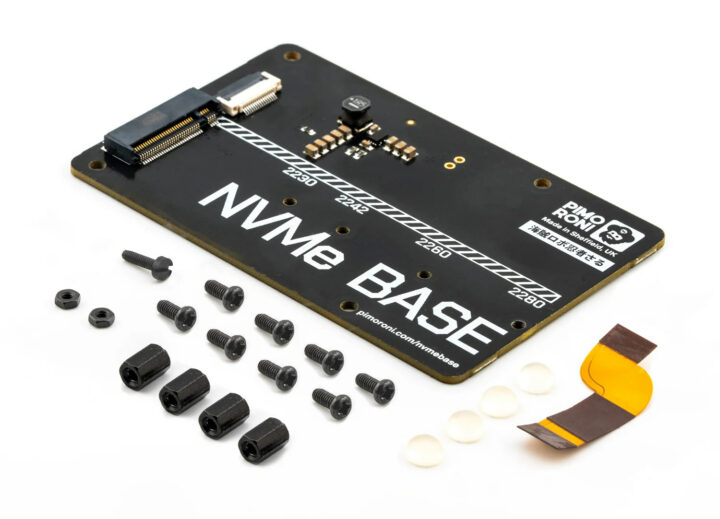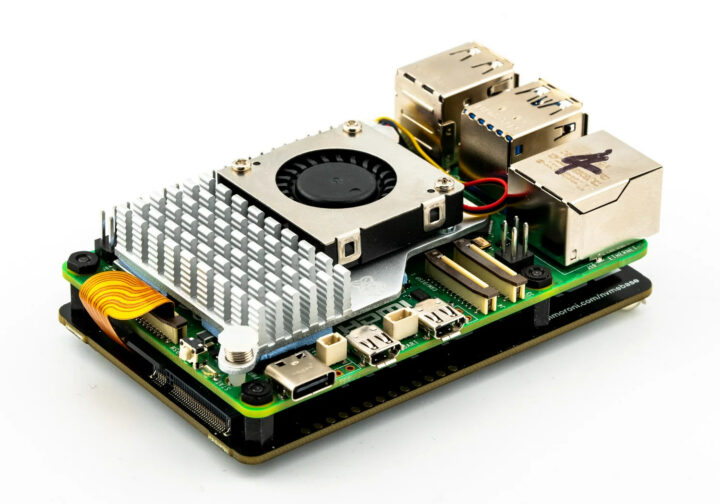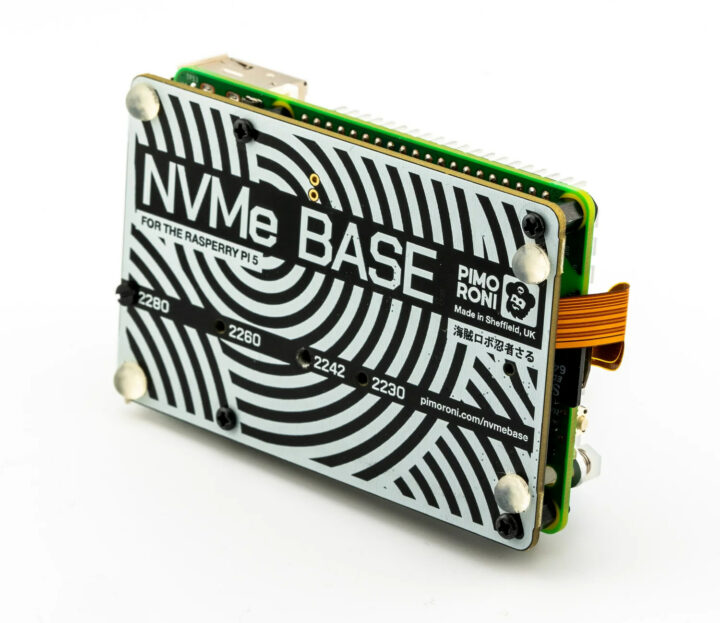Pimonori has started to take pre-orders for the NVMe BASE add-on board that adds an M.2 PCIe socket underneath the Raspberry Pi 5 SBC with support for M.2 NVMe SSDs and M.2 AI accelerators with 2230, 2242, 2260, or 2280 sizes.
It’s not the first M.2 expansion board for the Raspberry Pi as the PineBerry Pi HatDrive TM1 and BM1 add-on boards launched last month can also do that either on top of on the bottom of the Raspberry Pi, but the NVMe BASE is quite cheaper at just 13.50 GBP inc. VAT or $14.29 ex. VAT at the time of writing.
NVMe Base key features and specifications:
- NVMe Base PCB
- M.2 M-key slot
- Holes for 2230, 2242, 2260, and 2280 sized M.2 modules
- Raspberry Pi FFC PCIe connector
- ‘PCIe Pipe’ Flat Flex Cable
- M2 bolt and 2x nuts for SSD mounting
- 4x 7mm M2.5 standoffs for base mounting
- 8x short M2.5 bolts for base mounting
- 4x long M2.5 bolts for ‘pass-thru’ mounting with a HAT
- 4x Rubber feet
Since the NVMe Base goes underneath the Raspberry Pi 5 we’d almost not see it once installed with only the golden flat cable and black PCB visible. One concern is that the NVMe SSD faces the bottom side of the Raspberry Pi 5 and there’s no cooling in such a tight space. Only time (and testing) will tell if that matters.
The company says the add-on board follows the just-released Raspberry Pi FFC connector specifications and guidelines so I would not expect any issue with most SSDs. But if you want something that works with close to 100% certainty, you can also order a $57.15 kit with the NVMe Base and a 500GB Kioxia Exceria SSD that has been tested successfully with PCIe Gen3 x1 on the Raspberry Pi 5.
Other SSDs tested by Pimoroni include Western Digital Black SN750 SE Series, Samsung 980, Crucial P3 Plus M.2 Series, Netac M.2 NVMe SSD, Inland PCIe NVMe SSD, Samsung 980 Pro, Lexar NM710, Sabrent Rocket 4.0, Crucial P2 M.2 Series, and Lexar NM620, but the company does not recommend the WD Green SSDs as “drives such as the SN350 are temperamental with the CM4 and RPi 5”.
Shipping of the NVMe Base is expected to start in the first week of January 2024, although we’re told some units may also ship right before Christmas 2023.

Jean-Luc started CNX Software in 2010 as a part-time endeavor, before quitting his job as a software engineering manager, and starting to write daily news, and reviews full time later in 2011.
Support CNX Software! Donate via cryptocurrencies, become a Patron on Patreon, or purchase goods on Amazon or Aliexpress







